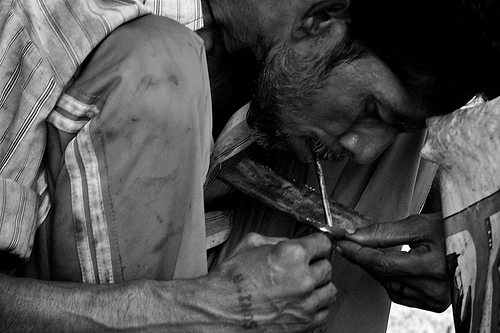As an extreme example, consider a heroin addict: taking heroin will make this person feel really good–for a little while. Then, when the drug wears off, the addict is left to face whatever problems the heroin was meant to be an escape from, plus whatever problems shooting up has caused–like getting arrested or using the rent to buy drugs, for instance. The bad choice of taking the drug causes bad situations that make the addict unhappy, so that taking more of the drug is that much more appealing, as a way to escape the unhappiness.
I most often use the phrase “feedback loop” to refer to the helpful kind of feedback, like journaling several times a week while working toward a goal. This kind of feedback loop provides a way to look at progress and trouble over the past few days and try out corrections that themselves will be looked at during the next feedback loop (which is what makes it a loop). But there are different kinds of feedback loops that can work against us, like the addict, his troubles, and his needle.
All which is to say that bad choices and unhappiness work together to cause more bad choices and unhappiness. Weirdly enough, this is good news, because it means that if either the behavior or the unhappiness is interrupted, both the behavior and the unhappiness can be lessened.
Getting back to our drug addict (who in a very general sense is in the same kind of bad feedback loop as someone who overeats or doesn’t do the dishes regularly or avoids calling back clients when something goes wrong), this means that anything that makes life a little more bearable can make it a little easier to think about getting off the drug, and that getting off the drug (after withdrawal is over and the consequences are faced) automatically starts making life a little more bearable in some ways.
Most of us have it much easier than the drug addict: if I start doing a better job of sorting my mail as it comes in, for instance, I’ll immediately start feeling a little better about my organization, unless the problem had gotten so bad that I needed to go through the shock of finding out what was in my mail first. And if I start feeling a little better about things, it will be easier to try organizing the mail more reliably.
In the end, both parts of the cycle usually need work. After all, addictions don’t usually go away by themselves, nor do addicts tend to stay out of trouble long if staying out of trouble means they’re miserable all the time. But by attacking either of the parts alone to begin with–whichever is the easiest to affect–we can get an initial boost that will make following through that much easier.
Photo by nicolas



